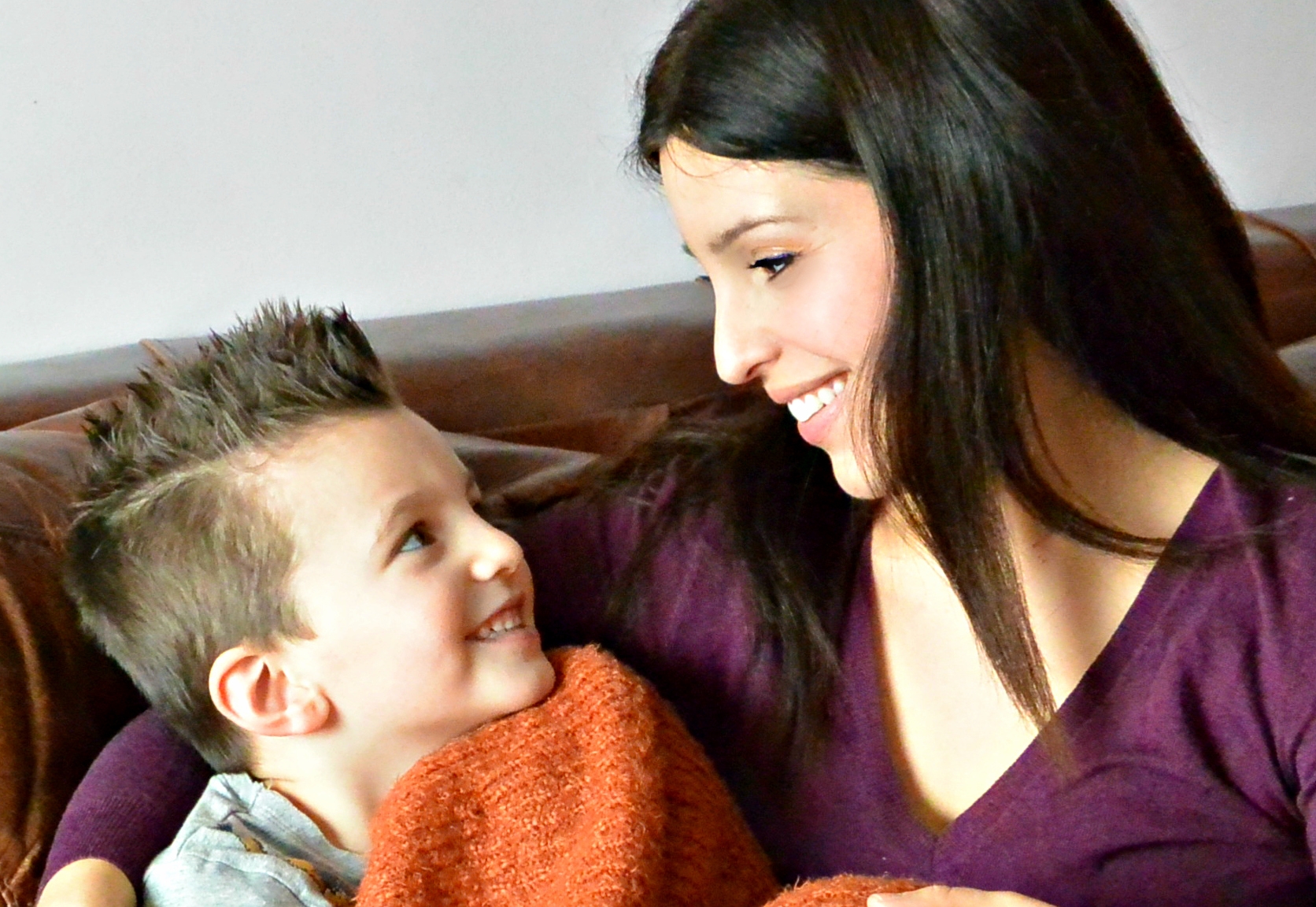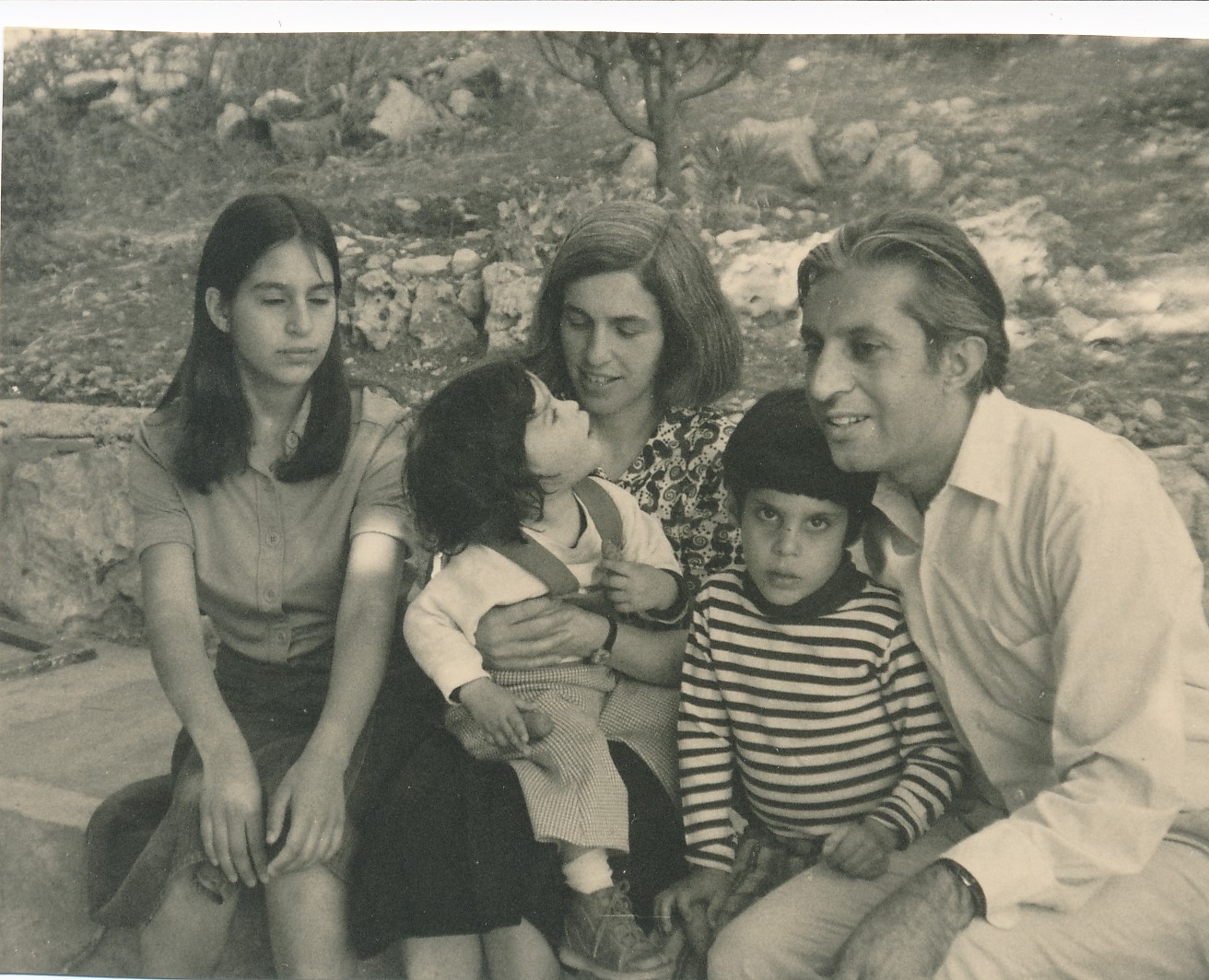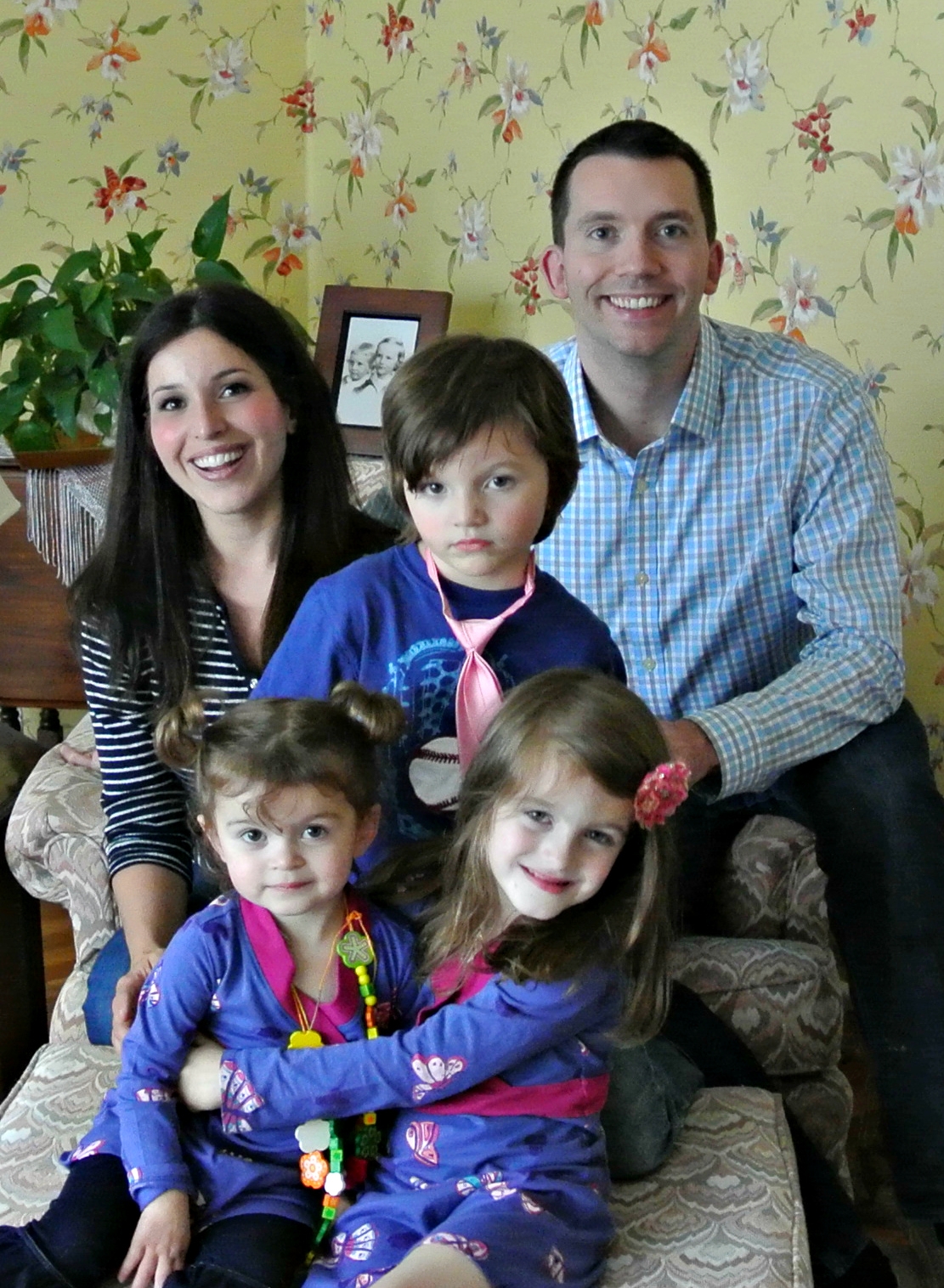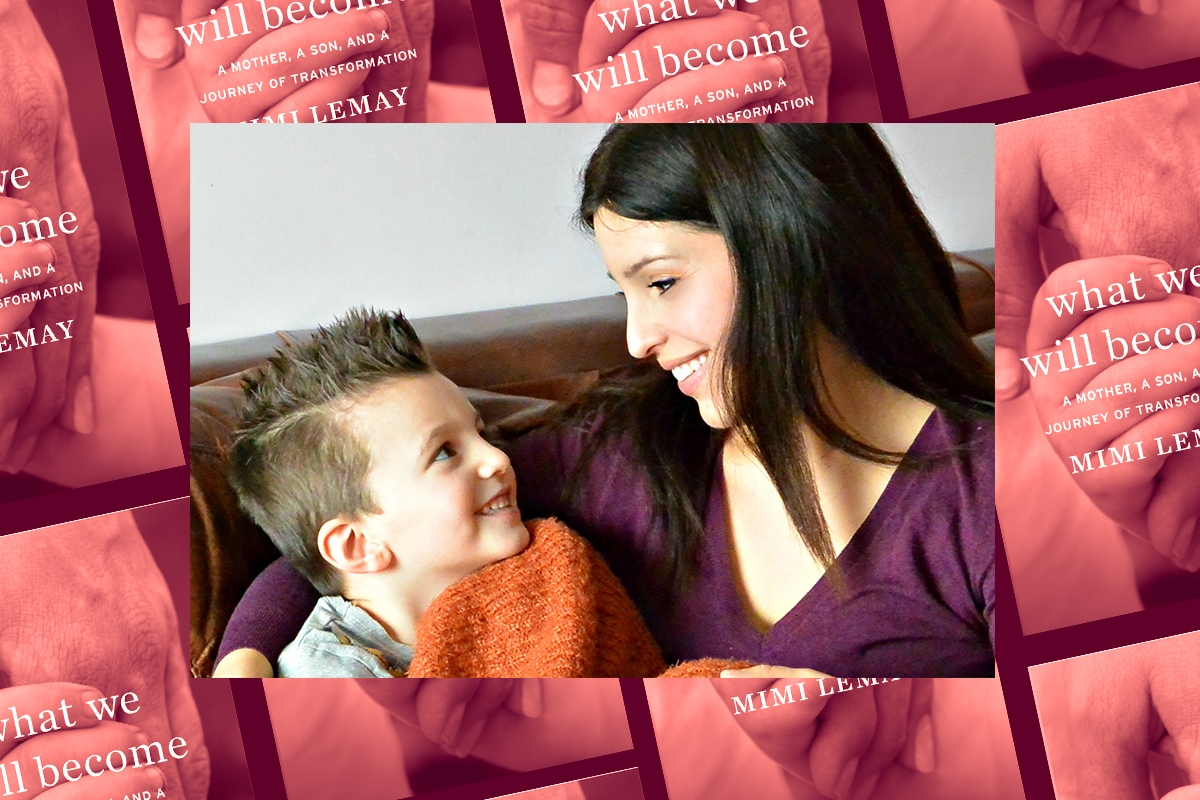This article first appeared on Kveller.
Mimi Lemay’s son, Jacob, came out as trans when he was just two and a half years old.
“My initial reaction was a non-reaction,” Lemay said in an email interview. “The first time he said he was a boy didn’t register for me because I just thought it was ‘playacting.’ The word ‘transgender’ was mostly unfamiliar to me and I certainly didn’t associate it with someone as young as my child. Now I know better.”
In her new memoir, “What We Will Become: A Mother, a Son and a Journey of Transformation,” Lemay writes about raising a transgender child. But the book isn’t just about Jacob’s journey — it’s also about her own. Raised in an ultra-Orthodox Jewish family, Lemay left the community to forge her own path. It’s a powerful and moving story, and a must-read for parents of all stripes.

“Jacob on the eve of his 5th birthday, right before we began our advocacy, so that he and other transgender children could grow up in a world that understands and accepts them.” (Courtesy Mimi Lemay)
“I hope first and foremost that [readers] take away with them the experience, as much as it is possible, of what it is like to love and affirm a transgender child,” she says. “I hope it informs all their interactions with trans and non-binary people and awakens in them a commitment to fight against the erosion of rights we are seeing now.”
Kveller chatted with Lemay about the origins of the book, her family’s reaction, and what the Jewish community can do to better support trans kids.
The book is based on your 2015 essay, which went viral. Were you surprised by the reaction to it? What made you decide to go public with your advocacy?
I don’t know if surprise captures the feelings I had when “A Letter to Jacob on His Fifth Birthday” went viral. Anxiety, excitement, a profound sense of gratitude, but also vulnerability would capture the mix of feelings I had. I had written the essay for two reasons: One, that there was very little out there to help families like ours understand what our kids were going through and what they needed from us. We had the urge to “pay it forward,” for the one story that had been shared online that helped our family tremendously.

“Jacob, age 5, on the day he started pre-kindergarten with his affirmed identity. Before the transition, we had never seen such radiant smiles.” (Courtesy Mimi Lemay)
The second reason was that it became apparent, after the tragic death of 17-year-old Leelah Alcorn, who had endured familial rejection and conversion therapy efforts, that trans children were in danger because of the lack of understanding and awareness of this topic. The hostility and ignorance surrounding trans identities began to surface in a very public fashion in the weeks after her suicide in late December 2014. I wanted to offer an alternative narrative, to allow people to see inside our world for the purposes of understanding that yes, there are children who know from a young age that their gender identity differs from their assigned sex, and supporting them is the healthy and loving thing to do.
What led you to turn the article into “What We Will Become”?
I was approached by several literary agents who thought this essay should be turned into a full-length book. I thought deeply about undertaking this task, and as a family we discussed the kind of effort and exposure this would bring. We are well situated to take on advocacy, living in an affirming community in and in a legally supportive environment toward LGBTQ people in Massachusetts. I have always believed that if we were just able to walk a mile in someone else’s shoes, there would be far less strife and more acceptance in the world. The book was a chance to offer not just that first mile, but the whole journey, step by step. It also gave me the opportunity to tell the other half of the story, the eerie symmetries between my experiences growing up in ultra-Orthodoxy and what unfolded with my son.
You have a complicated relationship with your mother. How did she react to the book?
My mother’s reaction was complicated. On the one hand, she has acknowledged that it is well and powerfully written, but she didn’t see why she needed to be such a big part of the story, or why I needed to write about moments that occurred between us. It was hard to convey my belief that stories must be authentic and intimate to impact readers and create change. I explained that I had carefully [picked] the moments that I would include in the story to present a balanced view of our relationship, but that I had to tell them from a place of truth, no matter how raw and difficult. I hope I have conveyed the complexity in our relationship, that there is and was love and support, alongside areas where her faith in other things blinded her to my needs. I hope readers see in her a multi-faceted, deeply complicated and loving character.

“This is one of only a handful of pictures of my parents together with my brother Uriyah and me. I must have been about one-and-half or two years old (1977-1978). You can just see the stone walls and the fruit trees of our Jerusalem neighborhood in the background.” (Courtesy Mimi Lemay)
When Jacob first told you he was a boy, what resources did you turn to?
Parents today have resources I never had, and the topic is being widely discussed, though not always accurately. After Jacob become more insistent and persistent in his claims to be a boy, as well as the distress that accompanied these moments, my husband and I began to research and consult with medical professionals who helped us understand that for Jacob, his claims to be a gender that was different than the one assigned at birth were serious and reflected his reality.
It took us a while to believe that his reality was real, and that our understanding of his gender based on false information was not. As parents our choices would be either to support and accompany him on his journey, to turn our backs on it, or God forbid, to try to hamper him in his efforts to live authentically. Thankfully, we chose to support him.
What advice do you have for other parents who are raising transgender children?
There is no downside to listening with respect to your child in these matters. As adults, we want the best for our kids, and we may be beset by doubts: Is this a stage? What if I’m encouraging something that isn’t necessary? Researching and accessing knowledgeable professionals and talking to other parents of trans kids can help us know we are on the right path. But, at any time, the right answer is to show your child that you love them unconditionally, and that you are listening and learning in order to be as supportive as you can be. That trust is critical, because no matter how turbulent this may be for you, the journey is likely harder for them — and it is, after all, their journey. You can walk with them or you can turn away. I hope parents choose to walk alongside their children. The rewards are immeasurable. When you do, there is a community waiting to embrace you. Some resources I recommend are local PFLAG groups, gender clinics that offer affirmative care, and online communities of parents like us.

(Courtesy Mimi Lemay)
What can Jewish communities do to be more welcoming and accepting of trans Jewish kids?
First, we must acknowledge these kids — trans and non-binary — as a precious part of our community. After all, they may reflect an aspect of tzelem elokim [the image of God] that is hinted at in our ancient scriptures and commentaries who speak of the feminine and masculine aspects of God. My son has certainly deepened my understanding of the soul — that it functions as the most genuine and authentic part of us and is only clothed by the skin and bone.
I saw a miracle when my son transitioned. I saw a child who was receding into darkness come to life. Jewish communities should celebrate these moments and the lives made whole. Make synagogues and community centers embracing of LGBTQ+ members and devote time and energy to education and inclusion, as well as the work that Ruth Bader Ginsberg alluded to when she wore her tzedek pin recently to deliberate a case which hinged on LGBTQ rights — referring to the passage: Tzedek, tzedek tirdof. [Justice, justice you shall pursue.] A Jew is obliged to pursue justice. We should not remain silent.






